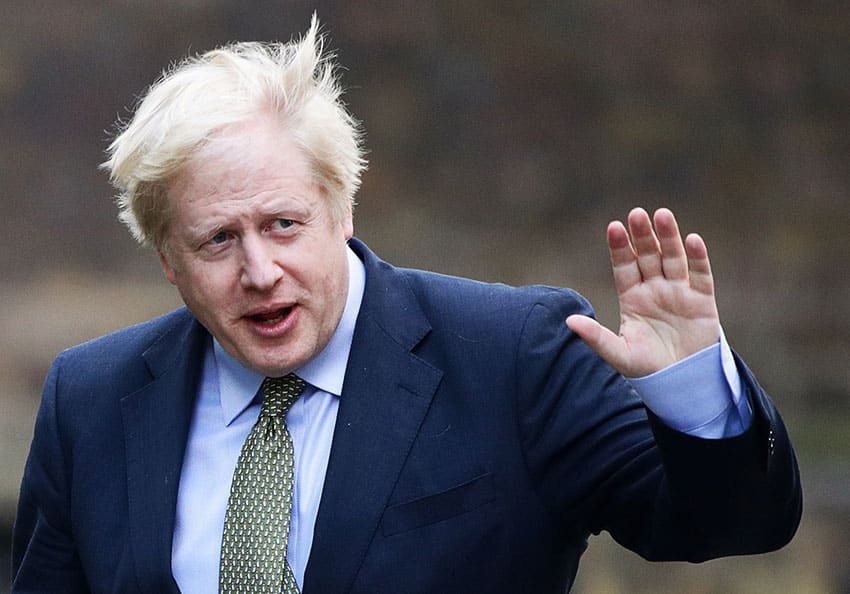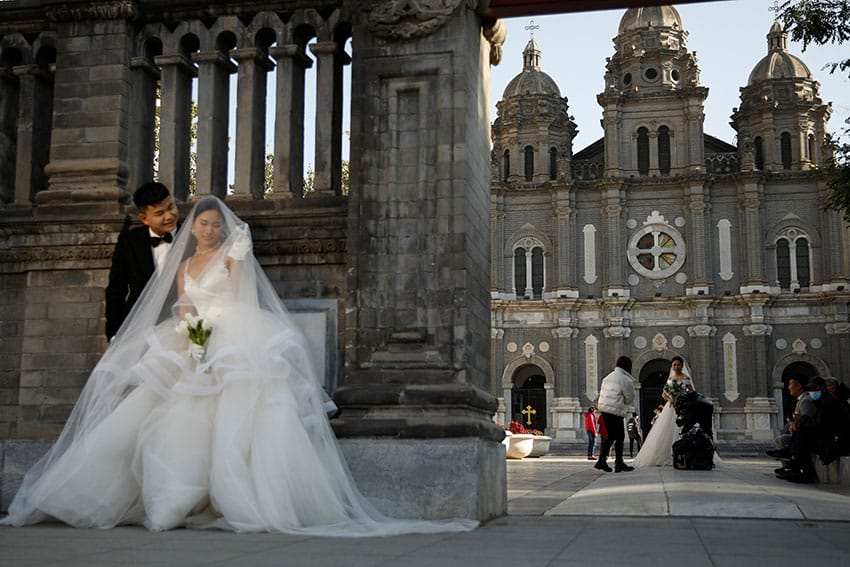
The news this week that the twice divorced British Prime Minister, Boris Johnson, had married at Westminister Cathedral in London sent the chattering classes into a spin. At one end of the spectrum there was wonderment and amazement at what had happened while at the other end cynicism about the Church and marriage was to be found.
Fortunately, there are enough facts in the public forum for all us to understand what has occurred.
It is a fact that Mr Johnson is a baptised Catholic. As such, like all baptised Catholics, he is subject to the law of the Church. Canon 1108 establishes the canonical form of marriage for Catholics. It indicates that for a Catholic a marriage is only valid if it is celebrated in the presence of a lawfully authorised priest/deacon and two witness. These are the weddings recognised by the Catholic Church for Catholics.

Catholics who marry in civil ceremonies
A Catholic party who participates in a wedding ceremony that does not observe the canonical form is not considered to have married in accord with the law. The only exception to this is if a special permission has been given.
The two previous unions entered into by Mr Johnson were civil ceremonies and therefore not in accord with the law of the Church. As such the Church did not recognise either union as a valid marriage. Therefore, Mr Johnson was free to marry in accord with the law of the Church. These facts would easily have been established by the priest from documents i.e. a baptism certificate, marriage certificates and divorce certificates.
Why Mr Johnson did not observe canonical form at the time of the earlier two weddings is not known to this author. It is known that he did not come from a traditional, Catholic family or have the benefit of such an upbringing. These factors may have played a part?
No Johnsonian exception
What all Catholics can be satisfied with is that the rule of law was applied to Mr Johnson as it would be to any other Catholic in his situation when he approached the Church to get married. There were no exceptions made because of: power, position, privilege, influence, money or anything else. What happened for Mr Johnson has happened for many other ordinary Catholics. That Mr Johnson was treated like any other member of the Church in accord with the law should give us great confidence in what has occurred.
What all Catholics can be satisfied with is that the rule of law was applied to Mr Johnson as it would be to any other Catholic in his situation
Further, what has occurred also demonstrates the pastoral nature of Church law. The law in this case has enabled Mr Johnson to participate in the mystery of marriage as taught by Christ and the Church. This hopefully will promote the salvation of the souls for all the parties involved.
The grace of God active in the lives of people always trumps wonderment and cynicism while confounding the naysayers.
Related
